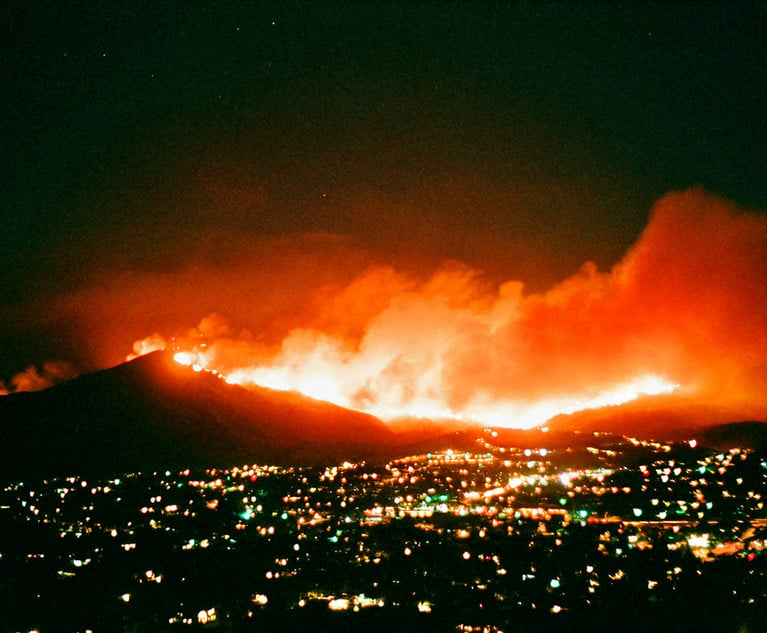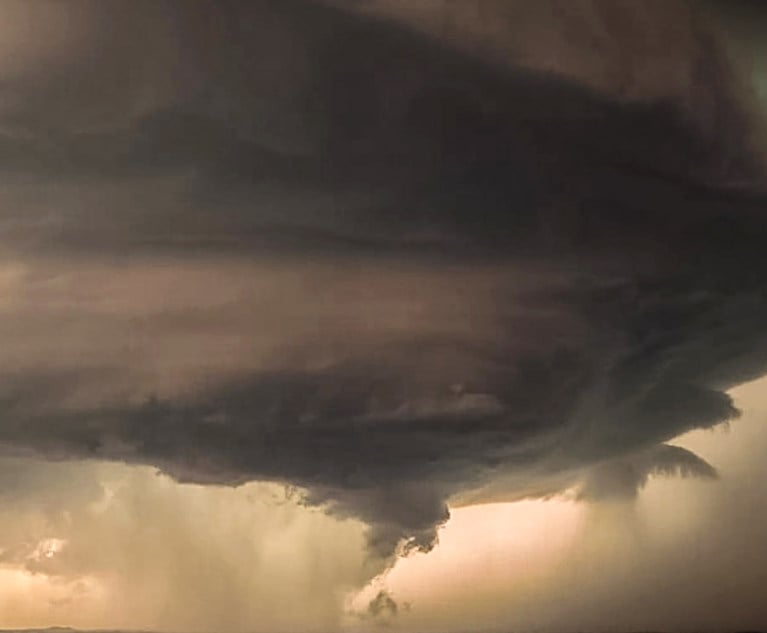(Bloomberg) -- New York’s cities and towns can block hydraulicfracturing within their borders, the state’s highest court ruled,dealing a blow to an industry awaiting Governor Andrew Cuomo’sdecision on whether to uphold a six- year-old statewidemoratorium.
|The state Court of Appeals in Albany today ruled 5-2 to upholdthe dismissal of lawsuits challenging bans in the upstate towns ofDryden and Middlefield.
|The towns engaged in a “reasonable exercise” of their zoningauthority when they banned oil and gas extraction and production,the court said in an opinion by Judge Victoria Graffeo.
|“The towns both studied the issue and acted within theirhome-rule powers in determining that gas drilling would permanentlyalter and adversely affect the deliberately cultivated small-towncharacter of their communities,” Graffeo wrote.
|The ruling may lead the oil and gas industry to abandonfracking, as it’s known, in New York as Cuomo considers whether tolift a statewide moratorium instituted in 2008 that he inheritedwhen he took office. It might create a patchwork across the stateof municipalities that do and don’t permit the process.
|“These appeals are not just about whether hydrofracking isbeneficial or detrimental to the economy, environment or energyneeds of New York, and we pass no judgment on its merits,” Graffeowrote. “These are major policy questions for the coordinatebranches of government to resolve.”
|Enlarging Cracks
|Fracking is the creation of fractures in rocks and rockformations by injecting fluid into cracks. The larger fissuresallow more oil and gas to flow out of the formation to be carriedto the surface.
|The process, used in states from North Dakota to Pennsylvania,has helped push U.S. natural gas production to new highs in each ofthe past seven years, according to the U.S. Energy InformationAdministration. It has come under increasing scrutiny fromenvironmental advocates.
|Parts of New York sit above the Marcellus Shale, a rockformation that the Energy Information Administration estimates mayhold enough natural gas to meet U.S. consumption for almost sixyears.
|The state barred fracking in 2008 while studying theenvironmental effects of the drilling method, which is allowed inmore than 30 states.
|N.Y. Bans
|Since then, more than 75 New York towns have banned frackingwhile more than 40 have passed resolutions stating they support itor are open to it, according to Karen Edelstein, an Ithacaconsultant affiliated with FracTracker Alliance, which analyzes theeffects of oil and gas drilling.
|Other jurisdictions are adopting similar laws. Beverly Hills inMay became the first municipality in California to prohibitfracking. The industry also has sued the Colorado cities of FortCollins, Lafayette and Longmont over bans.
|Scott Kurkoski, attorney for a dairy farm in Middlefield thatsued the township to overturn a ban passed in August 2011, arguedto the Court of Appeals on June 3 that the state’s Oil, Gas andSolution Mining Law prevents local governments from enacting zoningordinances that ban fracking. The dairy farm signed leases in 2007to explore and develop natural-gas resources under theproperty.
|Anschutz Lawsuit
|In September 2011, Anschutz Exploration Corp., an affiliate ofbillionaire Philip Anschutz’s closely held company, sued Drydenover its ban after buying about 22,000 acres of gas leases there.Norse Energy, a Lysaker, Norway-based explorer whose U.S. unitfiled for bankruptcy in December 2012, replaced AnschutzExploration in the Dryden appeal.
|Separate state judges dismissed the lawsuits challenging thebans in February 2012. Those rulings were affirmed by anintermediate appellate court in Albany in May 2013. A judge inLivingston County in April dismissed another lawsuit seeking tooverturn a ban in Avon, a town of about 7,000 people south ofRochester.
|While state law prohibits municipalities from passing laws orordinances related to oil, gas and mining regulations, the zoningrestrictions enacted in Dryden and Middletown don’t qualify asattempts to regulate the industry and aren’t preempted, theappellate court said in the May 2013 ruling.
|Attorneys for the towns have contended they have the right toenact zoning laws as long as they don’t impede stateregulations.
|Municipalities’ Rights
|Deborah Goldberg, an attorney for the nonprofit groupEarthJustice representing Dryden, told the Court of Appeals on June3 that the state legislature can take away municipalities’ rightsto specific zoning laws, yet usually leaves protections in placewhen it does so.
|Thomas West, an attorney for Norse Energy, said the industry maydecide to turn its back on the state if local bans are allowed.
|Cuomo, a 56-year-old Democrat, is trying to balance the prospectof the type of economic development seen in Ohio and Pennsylvaniaagainst claims by environmental groups that drilling willcontaminate drinking water.
|Cuomo took office in 2011. The following year he put HealthCommissioner Nirav Shah in charge of studying how drilling mayaffect residents’ well-being. The governor had said he would basehis determination on Shah’s conclusions.
|Shah resigned in May to take a job with the Kaiser FoundationHealth Plan in southern California, leaving the review to actingHealth Commissioner Howard Zucker.
|State Regulator
|Joe Martens, head of the state’s Environmental ConservationDepartment, told state lawmakers in January that he won’t issuefracking regulations until at least April 2015, signaling thatCuomo probably won’t make a decision before he faces re-election inNovember.
|The cases are Anschutz Exploration Corp. v. Dryden, 902/2011,New York Civil Supreme Court, Tompkins County (Ithaca); andCooperstown Holstein Corp. v. Town of Middlefield, 1700930/2011,New York Civil Supreme Court, Otsego County (Cooperstown).
|Copyright 2018 Bloomberg. All rightsreserved. This material may not be published, broadcast, rewritten,or redistributed.
Want to continue reading?
Become a Free PropertyCasualty360 Digital Reader
Your access to unlimited PropertyCasualty360 content isn’t changing.
Once you are an ALM digital member, you’ll receive:
- All PropertyCasualty360.com news coverage, best practices, and in-depth analysis.
- Educational webcasts, resources from industry leaders, and informative newsletters.
- Other award-winning websites including BenefitsPRO.com and ThinkAdvisor.com.
Already have an account? Sign In
© 2024 ALM Global, LLC, All Rights Reserved. Request academic re-use from www.copyright.com. All other uses, submit a request to [email protected]. For more information visit Asset & Logo Licensing.








